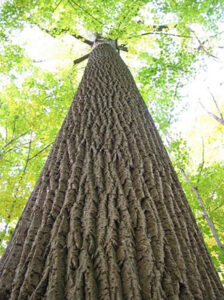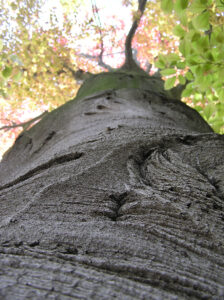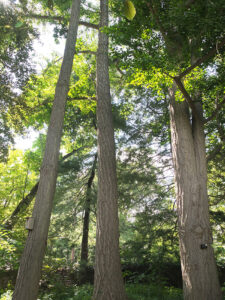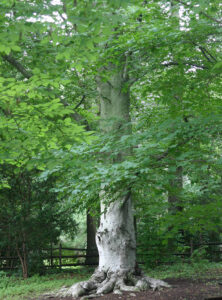
REEVES-REED ARBORETUM AWARDED LEVEL II ARBNET ACCREDITATION FOR OUTSTANDING COMMITMENT TO TREE CONSERVATION AND EDUCATION
SUMMIT, NJ – Reeves-Reed Arboretum in Summit has been awarded a Level II Accreditation by the ArbNet Arboretum Accreditation Program and The Morton Arboretum. Achieving Level II accreditation demonstrates a commitment to professional standards, education and conservation efforts within the field of arboriculture. The ArbNet Arboretum Accreditation Program is the only global initiative to officially recognize arboreta at various levels of development, capacity, and professionalism. Reeves-Reed Arboretum is now recognized as an accredited arboretum in the Morton Register of Arboreta, a database of the world’s arboreta and gardens dedicated to woody plants.
Established in 1974, Reeves-Reed Arboretum is a non-profit public arboretum and educational resource dedicated to engaging, educating and enriching its visitors to become better stewards of nature and the environment. Programming includes environmental and horticultural classes and workshops, volunteer opportunities, community engagement events, seasonal festivals, children’s nature camps, school and scout programs, and more. Its grounds feature 13.5 acres of natural beauty, including historic and contemporary gardens and six acres of woodland forest that include at least one hundred different species or varieties of woody plants.
Trees of great significance at Reeves-Reed Arboretum include: Tulip trees (Liriodendron tulipifera) that are well over 100 years old and over 100 feet tall; Two exceptional European Beech trees (Fagus sylvatica), the senior one affectionately known as the ‘Elephant Tree’ is also 100+ years old; A trio of Ginkgos and a Sugar Maple that is 150+ years old with limbs extending protectively over the Arboretum’s iconic Daffodil Bowl where over 50,000 daffodils bloom every spring.
Additionally, Reeves-Reed Arboretum’s woodlands contain many specimens of well-known native trees with several species including Oak, Hickory, Pine, Plane, Black Gum, Musclewood and Ironwood. The core grounds contain ornamental native and non-native trees, each of which have significant importance in the Arboretum’s collections and historic gardens, including Dogwood, Crabapple, flowering Cherry, Japanese Maple, Katsura, and 12 different cultivars of Eastern Redbud and 25 different cultivars of Magnolia.

“Having this accreditation will allow Reeves-Reed Arboretum to share data, experiences, best practice models, and plants while allowing us to learn from others in the network,” shared Curatorial Director of Horticulture and Facilities, John Beirne. “It will also open us up to more funding opportunities, bring us more validity and visibility, and expose us to new insights, adaptations, and scientifically relevant information during this challenging time of natural worldwide climate change. Together with ArbNet and the Botanical Garden / Arboreta community, we are stronger!”

About ArbNet
ArbNet is an interactive, collaborative, international community of arboreta. ArbNet facilitates the sharing of knowledge, experience, and other resources to help arboreta meet their institutional goals and works to raise professional standards through the ArbNet Arboretum Accreditation Program. The accreditation program, sponsored and coordinated by The Morton Arboretum in Lisle, Illinois in cooperation with American Public Gardens Association and Botanic Gardens Conservation International is the only global initiative to officially recognize arboreta based on a set of professional standards. The program offers four levels of accreditation, recognizing arboreta of various degrees of development, capacity and professionalism. Standards include planning, governance, public access, programming and tree science, planting and conservation. More information is available at www.arbnet.com.

About Reeves-Reed Arboretum
Reeves-Reed Arboretum has been a cornerstone of Summit’s cultural landscape since 1974 and is currently celebrating its 50th year as a public arboretum. Listed on both the National and State Registers of Historic Places, it is open to the public 7 days a week and serves as a sanctuary for both visitors and wildlife. More information is available at www.reeves-reed arboretum.org.

